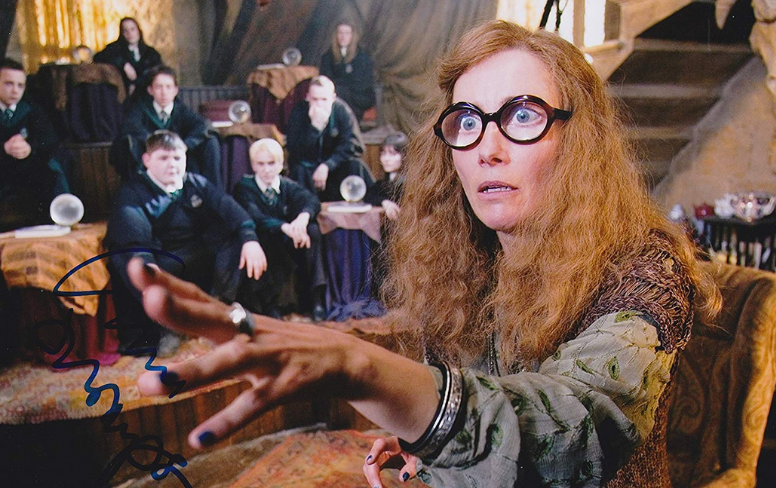Unfogging the Future: Seers
February 18, 2020—While Victoria and I agreed in Episode 15 that the ball of quirkiness that is Luna Lovegood is probably not a Seer, it’s actually very difficult to be sure either way. Not just because Luna’s extreme perceptiveness can sometimes seem supernatural, but also because of how little we know about Seers and Divination within the Harry Potter universe. And what we do know sometimes seems contradictory. Here’s a quick overview of the Wizarding World’s wooliest branch of magic.
What we know
Divination is something you either have or don’t.
The only true Seer we meet in the series is Sybill Trelawney, whose gift is… sporadic… at best. But despite her multitude of deficiencies, she does give at least two genuine prophecies, which is two more than all the other characters in the series (despite how much smarter and more magically gifted many of them are). Much like Parselmouths, Seers seem to inherit the ability, and those born without it are out of luck.
Many very smart people are skeptical of the craft.
Exhibit A: Professor McGonagall, who scoffs and sneers and employs sarcasm almost every time the subject (or Trelawney herself) comes up
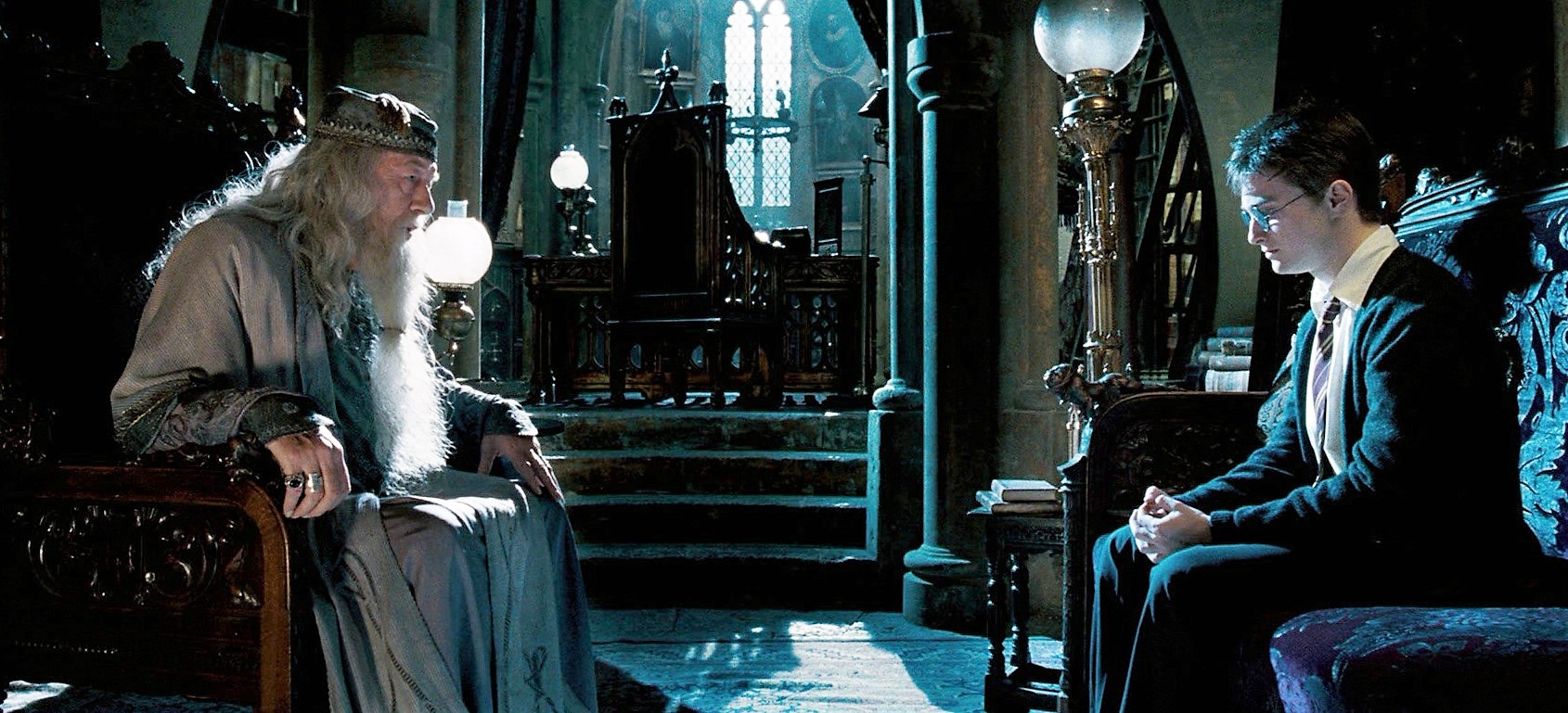
Exhibit B: Professor Dumbledore, despite the fact that he plans Harry’s entire life around a prophecy
Dumbledore gives a lengthy speech to Harry in Book 6 that seems to indicate that prophecies aren’t so much fate’s decree as fate’s tool. He conveys the idea that prophecies only have as much power and truth as people attribute to them and that they’re fulfilled only when people react to them.
It all becomes very chicken and egg. Is the prophecy about Harry true because it’s true, or because Voldemort believes it and acts in a way that makes it true? An academic argument, perhaps, but one that Dumbledore considers important.
Dumbledore: If Voldemort had never heard of the prophecy, would it have been fulfilled? Would it have meant something? Of course not! Do you think every prophecy in the Hall of Prophecy has been fulfilled?
Harry: But, but last year, you said one of us would have to kill the other —
Dumbledore: Harry, Harry, only because Voldemort made a grave error and acted on Professor Trelawney’s words! . . . He heard the prophecy and he leapt into action, with the result that he had not only handpicked the man most likely to finish him, he handed him uniquely deadly weapons!
True prophecies from Seers are easily identifiable by those who hear them.
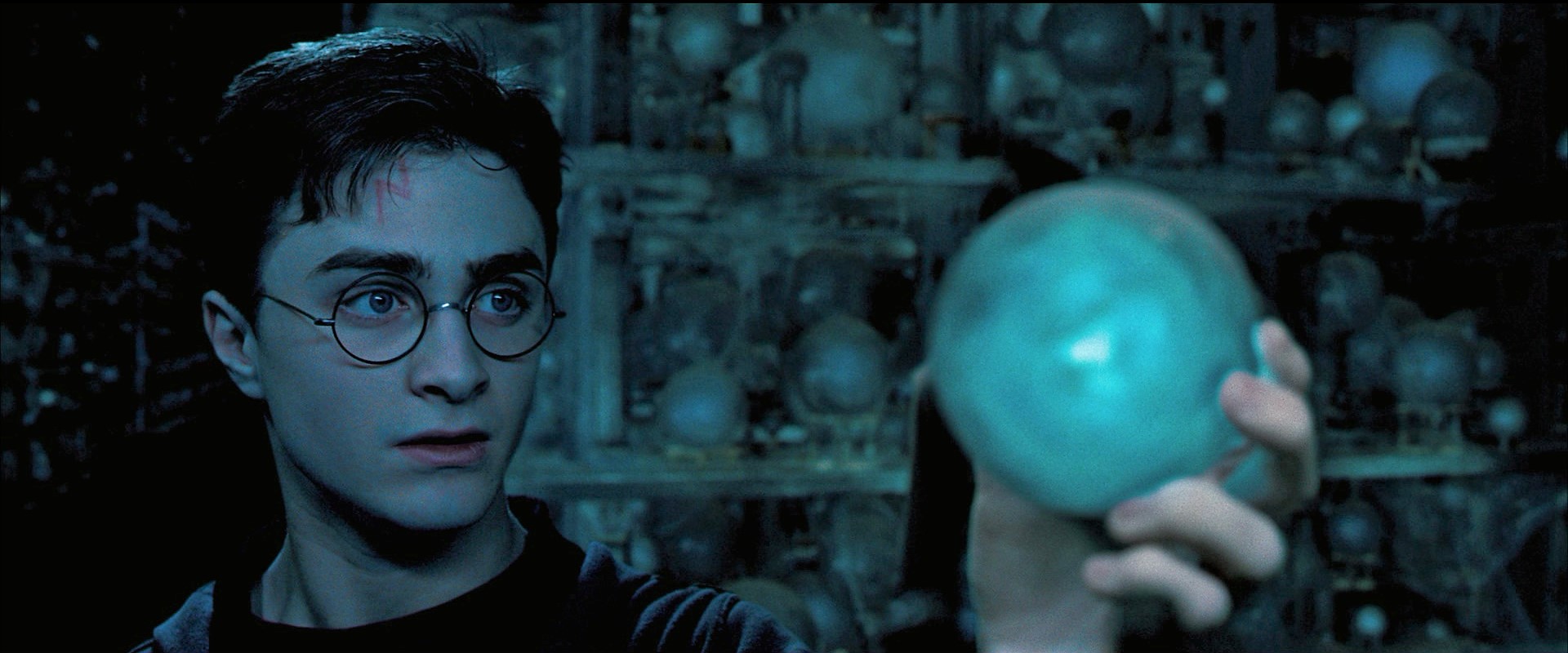
Trelawney’s first prophecy is heard by two people. Dumbledore is the primary recipient, and he immediately secures Trelawney’s placement at Hogwarts in order to protect her from the consequences of such a vision. Snape, despite hearing the words through a keyhole, is equally aware of their import and reports them to his master. Trelawney’s second prophecy is given to Harry himself, who doesn’t understand what’s happening but thinks she’s having a fit of some sort.
In both cases, the prophecy itself is easily identifiable to the hearers as something “other” and important, though Harry’s realization is slightly delayed.
Sometimes, Seers are right outside of their visions, even if by accident.
Aside from Trelawney’s two true prophecies, and in spite of her ineptness otherwise as a diviner, she often makes comments that, in hindsight, show unknowing insight into the future.
True, many of her predictions are self-fulfilling parlor tricks, or maybe placebo effects*:
- Telling a clumsy boy he’d break a cup thus making him so nervous he breaks the cup
- Warning of illness coming in the winter (duh)
- Making a student dread a specific date, thus ensuring that anything bad that happens on that date will be attributed to her foresight
- Suggesting that an elderly person might not be 100% healthy
- Predicting that someone would leave her rather unpopular class
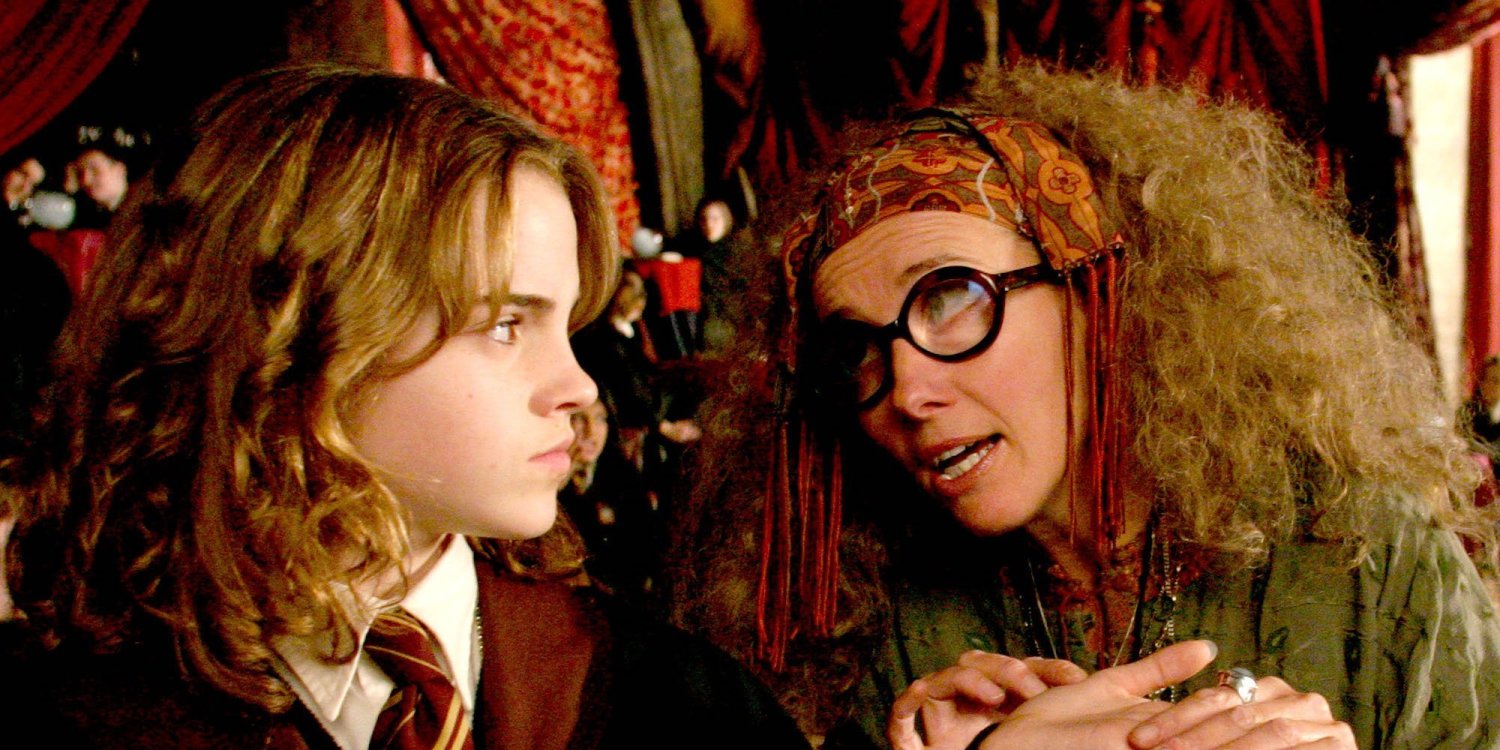
But on the other hand…
- She predicts in Book 3 that when 13 people dine together “the first to rise will be the first to die.” At the time, no one at the table knows that Pettigrew is in Ron’s pocket, making the party 13 before Trelawney even joins them. Thus, when Dumbledore rises to greet her, he becomes the “the first to rise,” and he does indeed die first, three books later.
- “The lightning-struck tower. Calamity. Disaster. Coming nearer all the time …” Trelawney says these words to Harry mere hours before Death Eaters invade Hogwarts and Dumbledore is killed… at the top of the Astronomy Tower. Given that JKR named the chapter containing his death “The Lightning-Struck Tower,” we can conclude that these vague allusions based on her card readings truly point to that specific calamitous, disastrous event.
*As an honorable mention, Trelawney at one point explains that she’s changing her lesson plan because “the fates have informed me that your examination in June will concern the Orb.” Since this might be the most patently ridiculous thing anyone says in the whole series, I couldn’t even bring myself to include it in a list of manipulative tricks. Hermione can be obnoxious in Book 3 in her war on Divination (and in general… Third Year doesn’t bring out a good color in Hermione), but I’m glad she pointed out the obvious in this case: “Who sets the exam? She does! What an amazing prediction!”
What we don’t know
Why have a subject that’s only learnable by certain people?
If Divination is an intrinsic (and often involuntary) art, why bother making it a class? We don’t see a single student make any real progress in the subject. I’ll concede that of the two teachers, one is a self-aggrandizing fraud and the other is a centaur who practices a brand of Divination mostly incomprehensible to humans. So it’s possible that with a competent teacher, things would be different. But even before the subject is taken over by Trelawney, the program is ineffective enough that Dumbledore considers letting it die entirely.
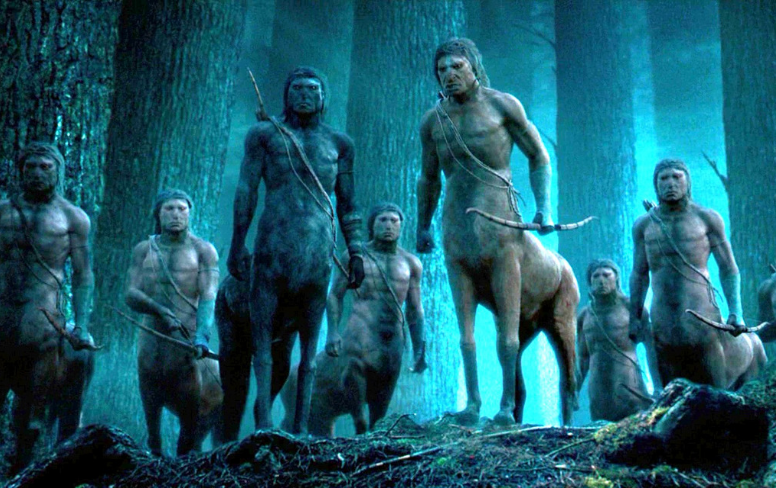
It seems that, theoretically, Divination exists to identify those with an aptitude and cultivate the talent. But this is a highly inefficient way of separating the wheat from the chaff, not to mention a good way to damage a non-talented student’s education with a useless class. Even if there’s no quick, sure-fire way to test a student’s ability, wouldn’t a club for those who want to explore the possibility hosted by a guest Seer waste everyone’s time a whole lot less?
How precise is it?
While there are a wide range of opinions among characters about the art, most everyone agrees that the future is murky. The big exceptions to this rule are centaurs, who believe so strongly that the future is set in stone that they adopt a militant passivity, and Trelawney, who pretends that her “gift” makes her omniscient.
Everyone else speaks of how difficult and uncertain fortune telling is, so who is right? Is the future of the Wizarding world written in the stars as the centaurs believe, or do Seers observe only impressions and shadows and possibilities?
Do non-prophecy predictions have any power, or are they placebos?
As I’ve already noted, some predictions outside real prophecies come true in the Harry Potter series. But by and large, all of the techniques taught in Divination (crystal balls, tea leaves, palm reading, cards, etc.) are ineffective and derided. So do they have any value at all, or is Trelawney just a blind squirrel who occasionally finds a nut? It’s never really made clear.
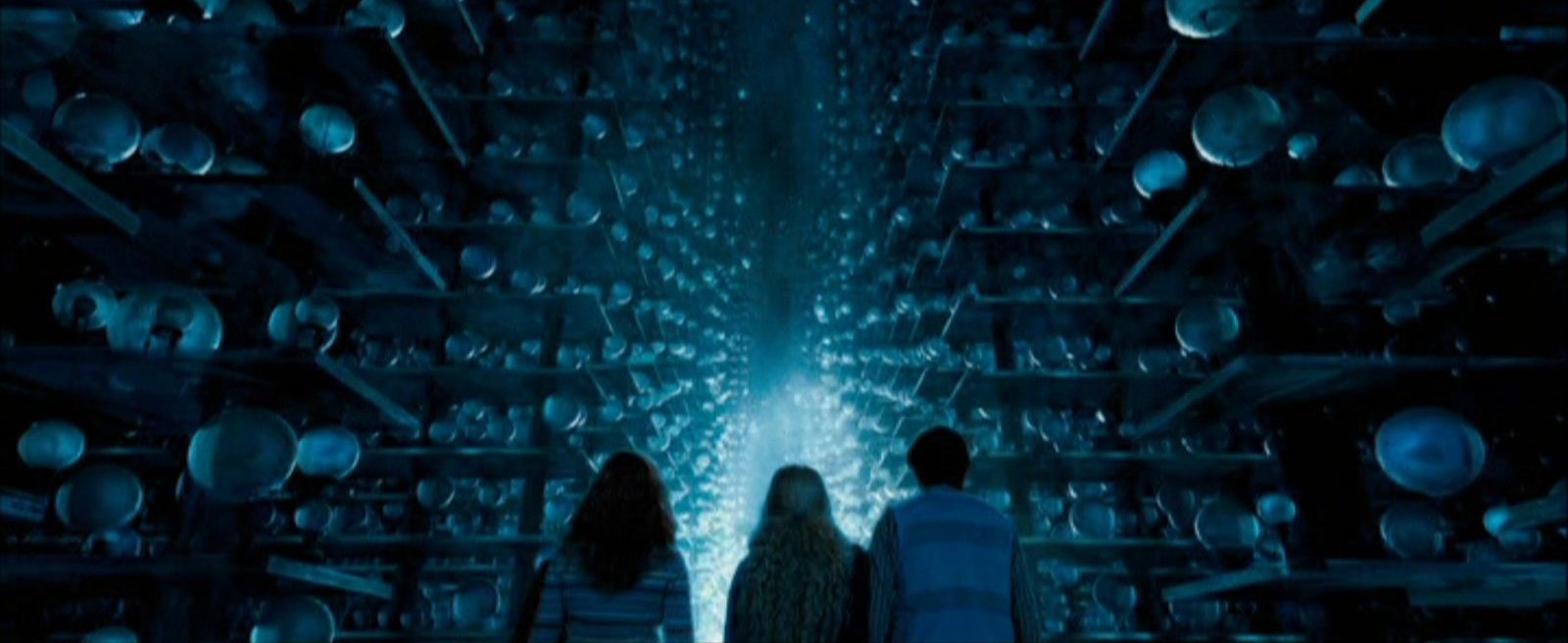
How rare is a true Seer?
We only know the names of two human Seers in the Harry Potter universe: Cassandra Trelawney, a celebrated Seer of the 19th century, and her great-great-granddaughter Sybill. But the Hall of Prophecy within the Department of Mysteries is filled with thousands, perhaps millions, of records. Unless the Ministry is able to track prophecies made all over the world or has been doing so for untold millenia, both unlikely scenarios, how did all those prophecies accumulate?
True, Dumbledore implies that two is a pitifully small number of prophecies for a Seer to deliver, so we can assume that there are far fewer Seers than prophecies. On the other hand, I think that we can conclude based on the sheer volume of prophecies that there are more than two Seers every five generations. But between those extremes, where does the truth fall? The world may never know.

